Navigating economic crisis and political unrest: Lessons Bangladesh and Sri Lanka can share

There is much to learn from both Bangladesh and Sri Lanka, two South Asian countries, as they navigate their shifting landscapes. While political changes swept through Bangladesh a few months ago, Sri Lanka experienced a political earthquake in 2022. Both countries grapple with an economic crisis, governance challenges, and social unrest. These comparative experiences hold a number of valuable lessons about resilience, managing crises, rebuilding stability, and recovering lost public trust.
In recent years, both Bangladesh and Sri Lanka have experienced severe economic strains, albeit for different reasons.
In 2022, acute foreign exchange shortages, rampant inflation, and high climbing debt marked a boiling point in Sri Lanka. Fiscal mismanagement for years, untroubled borrowing, and inefficiencies in the structure of the economy pushed it to default on its external debt for the very first time in history. Then came the Covid pandemic, which exacerbated the situation as tourism, one of the major sources of income that kept the country afloat, collapsed, and remittances fell. When forex reserves started to dwindle, the island nation could no longer import basic goods like fuel, food and medicine. The public took to the streets in protests amid political turmoil. Though there have been some improvements over the last couple of years, the economic crisis is still not over.
Bangladesh's situation, while not as severe, has shown troubling signs in recent years. The country has been facing growing inflation, a widening trade deficit, a rapid fall in forex reserves, and increasing debt. Like Sri Lanka, Bangladesh has also suffered from rising energy prices and difficulties in securing foreign exchange. While Bangladesh has so far avoided a full-blown crisis territory, much like Sri Lanka, there is a growing concern that mismanagement and unbridled borrowing under the Hasina government, juxtaposed against external pressures, might push it in the same direction.
Both Bangladesh and Sri Lanka have suffered from crony capitalism in recent years, where political favouritism and close ties between business elites and government officials have led to inefficient resource allocation, corruption, and exacerbated economic vulnerabilities.
Both countries' economic troubles have been linked, at least in part, to political instability. Since 2022, Sri Lanka's political turmoil intensified due to an economic collapse, widespread protests, and the resignation of President Gotabaya Rajapaksa. The presidential election last month became a critical moment, focusing on economic recovery, governance reforms, and addressing the citizens' demands for stability and accountability.
In July 2024, Bangladesh experienced a major political crisis sparked by student-led protests against a controversial job quota system. These protests boiled over into a nationwide unrest, demanding the resignation of the head of government, Prime Minister Sheikh Hasina. The violent government crackdown, which saw many deaths, further catalysed this movement. Hasina thus resigned and fled the country, leaving a power vacuum. In this respect, an interim government headed by Nobel Laureate Prof Muhammad Yunus, is trying to bring things to normal. The crisis represents a dramatic turn in the topography of Bangladesh's politics.
There are key lessons that Bangladesh can learn from Sri Lanka's economic and political crisis and reform initiatives.
First, debt management is required. Too much borrowing by Sri Lanka in unproductive infrastructure projects drained its financial resources, and Bangladesh similarly needs to diversify into more value addition within other sectors in order to avoid such a risk.
Second, avoiding populist economic policies is essential. Sri Lanka's tax cuts and subsidies worsened its fiscal deficit; Bangladesh must prioritise sound fiscal management over short-term political gains.
Third, agricultural reforms must be gradual and well-planned. Sri Lanka's rushed organic farming transition decreased productivity, worsening food shortages. Bangladesh must support farmers and ensure that sustainable policies are scientifically sound.
Fourth, Bangladesh can also learn from Sri Lanka's recent economic reform process by prioritising fiscal discipline, improving debt management, and fostering transparency in governance to avoid the pitfalls of unsustainable borrowing and ensure long-term economic stability.
Similarly, Sri Lanka can learn key lessons from Bangladesh's economic and political landscapes.
First, there is a need for an inclusive economic policy. Dissatisfaction with job quotas was one of the precipitating factors in the July-August uprising; thus, inclusive policy matters in seeking the amelioration of economic inequalities. Sri Lanka needs to provide equal opportunities, especially in offering jobs to its youth.
Second, it is about democratic governance too. Bangladesh's gradual drift into authoritarianism and manipulation of elections built up reasons for unrest. In Sri Lanka's case, protecting democratic processes and ensuring that governance is transparent are pivotal for sustaining political stability.
Third, there should be a check on corruption or mismanagement. Economic mismanagement in Bangladesh instigated animosity among the public. Sri Lanka should make effective efforts to reduce corruption, ensure fiscal responsibility, and thereby initiate sustainable development in a way that will help it avoid economic mismanagement.
At the same time, both Bangladesh and Sri Lanka face broader regional and global challenges that complicate their recovery efforts. These are pressing issues of rising global inflation, energy crises and the impacts of climate change, for which both nations will have to adopt quite pragmatic policies. Regional cooperation could provide opportunities in areas such as trade, infrastructure development and climate resilience for both countries. However, in the absence of any effective regional cooperation mechanisms, these two countries should aim for extended bilateral trade and investment ties.
Besides, the issue of governance improvement, reduction in corruption, and enhancement of the rule of law are areas to which both countries need to pay extra attention. A stable political environment is needed for the successful implementation of economic reforms. Institution-building, anti-corruption measures, and gaining public trust in governance are areas where much priority needs to be accorded by both Bangladesh and Sri Lanka if the economies of these countries are to recover on a sustainable basis.
Bangladesh and Sri Lanka also have salient lessons for each other regarding the ways to manoeuvre through the now-intractable nexus of economic crisis and political instability. Sri Lanka represents a cautionary tale of debt-fuelled downfall, whereas Bangladesh has managed to attain a manufacturing export-driven growth model that Sri Lanka can emulate in order to diversify its economy. Fiscal prudence, strengthening democratic institutions, and social safety nets are areas where both countries need to concentrate their efforts to ensure that this does not happen again. The lessons to be learnt from one another are by far the best means for them to create more resilient and prosperous futures for their citizens.
Dr Selim Raihan is professor at the Department of Economics in the University of Dhaka and executive director of South Asian Network on Economic Modeling (SANEM). He can be reached at [email protected].
Dr Ganga Tilakaratna is research fellow and head of poverty and social welfare policy research at the Institute of Policy Studies of Sri Lanka (IPS). She can be reached at [email protected].
Views expressed in this article are the author's own.
Follow The Daily Star Opinion on Facebook for the latest opinions, commentaries and analyses by experts and professionals. To contribute your article or letter to The Daily Star Opinion, see our guidelines for submission.

 For all latest news, follow The Daily Star's Google News channel.
For all latest news, follow The Daily Star's Google News channel. 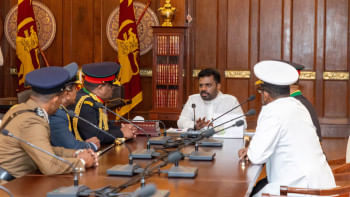
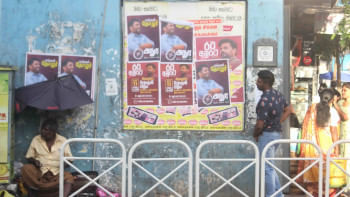
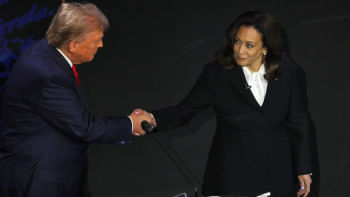





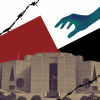

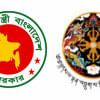


Comments